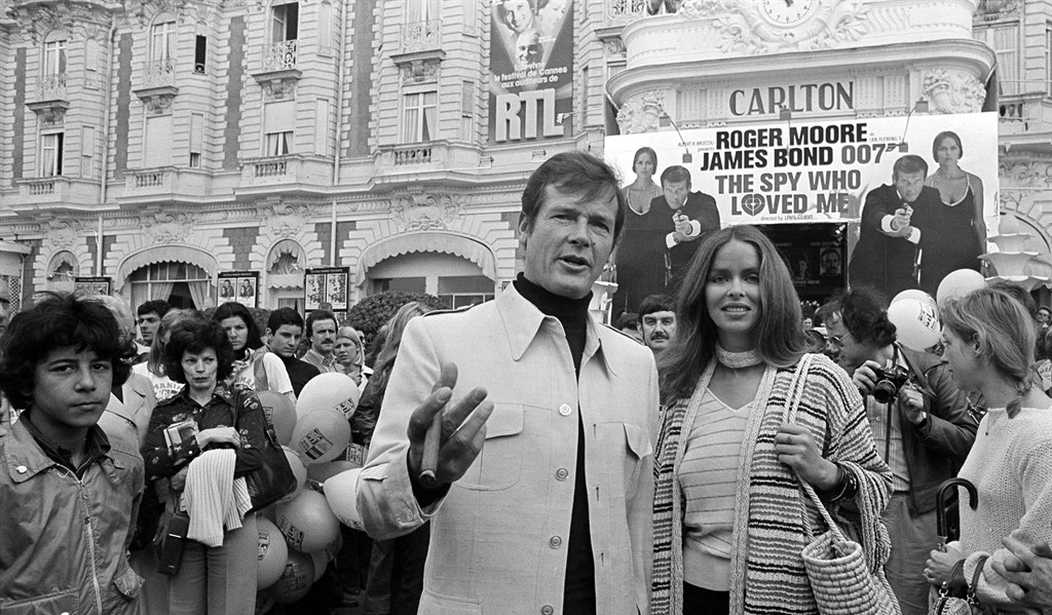Ian Fleming’s James Bond books will be rewritten to remove “offensive” references. It comes only days after it was announced that Roald Dahl’s books would be revised to eliminate politically incorrect phrases. In a way, revision is nothing new for the pop culture character. James Bond has been under constant revision almost from the moment he first appeared so that he is no longer the 30-something ex Royal Marine commando fighting the USSR in the immediate aftermath of WW2, but a cartoon. He went from fighting the historical SMERSH to the ahistorical SPECTRE. He went through a slew of actors and style eras. In common with other comic characters, Bond supposedly died but, in the way of such things, might return to life perhaps black, a woman, or transgender.
But certain members of the naive public always thought the literary original was recoverable; that Ian Fleming and his works had an independent, objective existence. When audiences were weary of Jaws and other outlandish villains, there was the assurance that we could peel back the transaction log and find the real McCoy. But nobody reckoned with Woke. They are not interested in changing fiction, but fact. It goes back and modifies Fleming, just as it did Dahl.
Soon the past will be just like the present. The future used to be an unknown and the past known. Now through the magic of automatic updates, the future fifty years from now is known to within 1.5 degrees precision while the past is completely indeterminate, depending on what the cultural gatekeepers decide next, and they’re always deciding.
“The past is a foreign country; they do things differently there.” Not anymore. To avoid triggering anyone, we are told that people in the past did everything just the same as cultural arbiters do at the instant you ask them. The changes ripple forwards and back. Soon studying history or literature will be like visiting foreign countries exclusively from the familiar precincts of a Holiday Inn so you can feel like you never left home. Because you never do.
However, constant revision carries the danger of making our record of the past totally indefinite. If James Bond can be rewritten in Fleming’s manuscript, what in principle prevents 007 from being retroactively invented as a Nazi or KGB agent? What forbids it? Western civilization once believed in something called “causality.” Causality was the influence by which a previous event contributed to the production of a subsequent event. A common justification for prohibiting faster than light travel is that if it were possible, causality would be violated. And you cannot change the past.
Or so it was once believed. Consider this paradox: if the Woke fix it so no one ever said or did anything politically incorrect in the past, then whence do all the evils they decry today come from? But that is to miss the point. No one cares about the facts. The whole point of radical ideologies is to be free of the facts and to achieve this the past must lose its claim to objective reality. You can change the past; you can change anything at all. The familiar lines from 1984 come to mind.
‘Until this moment you had never considered what is meant by existence. I will put it more precisely. Does the past exist concretely, in space? Is there somewhere or other a place, a world of solid objects, where the past is still happening?’
‘No.’
‘Then where does the past exist, if at all?’
‘In records. It is written down.’
‘In records. And—-?’
‘In the mind. In human memories.’
‘In memory. Very well, then. We, the Party, control all records, and we control all memories. Then we control the past, do we not?’ …
“Who controls the past controls the future: who controls the present controls the past.”
Pure power requires that only the present is real. Otherwise causality gets you. That’s why with Woke there’s a big future in predicting the past.
Sand and Steel:The D-Day Invasion and the Liberation of France by Peter Caddick-Adams.
Snow and Steel: The Battle of the Bulge, 1944-45 by Peter Caddick-Adams.
Monte Cassino: Ten Armies in Hell by Peter Caddick-Adams.










Join the conversation as a VIP Member